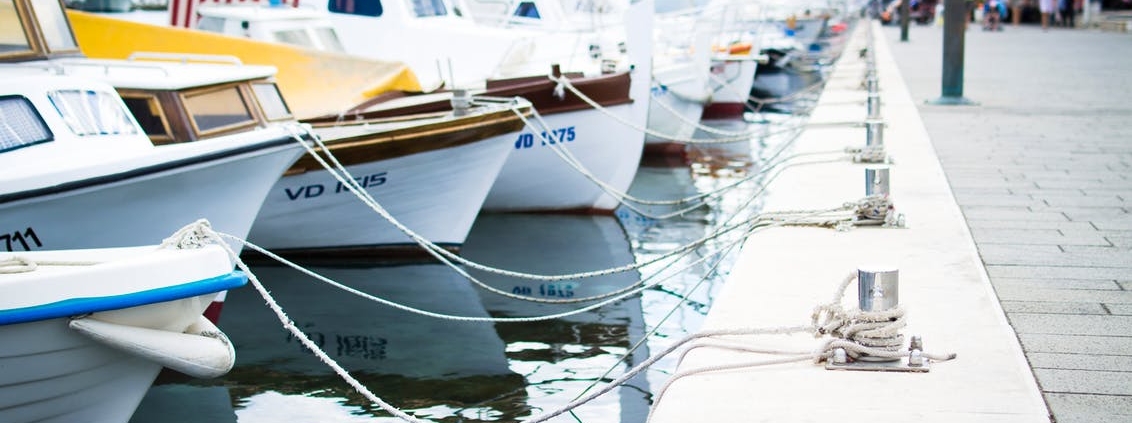
NC Will Be Seeing More Boating Accidents with Summer Approaching
As we approach summer, there will be more recreational boating underway throughout the Wilmington region. Boating safety is overseen by the North Carolina Wildlife Resources Commission, but it remains a dangerous activity.
In 2016, there were an estimated 367,225 boats registered in the state. Unfortunately, there were 147 reported boating accidents, 22 of which were fatal. Roughly 20% of the boat accidents with injuries or fatalities were alcohol-related.
Recently, there have been a few boat accidents in the news:
- Currituck Sound (2018): A boat capsized while traveling in the Currituck Sound after it began filling with water. The passengers signaled to a boat traveling in the distance; however, a 19-year-old from Cary, NC, died before he could be pulled from the water.
- Pungo River (2018): Emergency responders from Beaufort County in North Carolina found the body of a 45-year-old man in the Pungo River near Wades Point who had been missing after a boat accident. He was reported to have been wearing a lifejacket when his 21-foot towboat capsized.
- Intercoastal Waterway (2018): Several boaters are fortunate to be alive after being rescued in West Palm Beach. Other boaters in close proximity flocked to the scene as the boat was sinking. The captain of the rescue boat told 7News he “just did what he had to do.”
Vessel operators have certain duties in the event of an accident. They must stop and assist others in danger as necessary and when practical. If an accident with property damage or injury occurs, operators must exchange contact and boat registration information. The Wildlife Resources Commission should be notified by the fastest means available in cases of death or disappearance.
A written report to the Commission is required when:
- A fatality occurs
- An injury requires professional medical care
- Physical damage exceeds $2,000
- A disappearance occurs that suggests injury or death
However, this legal process will not provide accident victims with money to cover their medical bills and other expenses. For that, you must file a personal injury claim.
Leading Causes of Boating Accidents
The minimum age of boat operation in North Carolina is 14 years old, and those born in 1988 or later must take an educational course before operating a vessel with 10 horsepower or more in public water. These courses are free and offered by the North Carolina Wildlife Resources Commission, and the U.S. Coast Guard also offers approved courses. According to the U.S. Coast Guard, only 13% of fatalities involve operators who have completed the training requirement.
Here are the leading causes of boating accidents:
- Operator not paying attention
- Operator being inexperienced
- Operator making abrupt turns or speeding
- Operator driving recklessly (weaving through boat traffic, following other vessels too closely, jumping the wake of a nearby vessel, horseplay)
- Operator violating rules for navigation
- Alcohol consumption
- A mechanical problem
- Weather and hazardous water conditions
Many of these cases involve a human error, and as such are grounds for a potential lawsuit.
The legal limit for boat operation is a blood alcohol level of .08%, the same as for operating a motor vehicle. Boat operators found to be under the influence of alcohol may face a federal offense. Penalties for convictions can reach $5,000 in fines and potential jail time. State law enforcement employs mobile stations for breath testing and may come onboard to randomly check for alcohol-related violations. The U.S. Coast Guard says alcohol consumption is a common contributing factor in fatal boat accidents.
Who’s Responsible for a Boat?
Recreational boats must have Type I, II, or III personal flotation devices for each person on board. Boats that exceed 16 feet must also have a “throwable” PFD on board. All children under 13 years old must be wearing a size-appropriate PFD unless they are below the deck or in a closed area. It’s up to the boat’s owner to stock the vessel with safety equipment. And if you are injured in a boating accident, that owner should also have insurance coverage.
According to the North Carolina Department of Insurance, insurance policies for watercraft may include liability, physical damage, and medical payments. There are a host of provisional coverage limitations depending on the boat’s horsepower and size.
If you or a family member was injured in a North Carolina boating accident, speak to the maritime attorneys at Rhine Law Firm, P.C. We will examine your situation and determine if there is compensation available for your injuries and any other losses. For a free consultation, please call (910) 772-9960.
About Us
Rhine Law Firm, P.C. serves clients throughout North Carolina and nationwide, specializing in complex civil litigation led by Joel Rhine. With expertise in personal injury, car accidents, property damage, sex abuse, and more, the firm is passionate about taking on challenging cases. They emphasize providing personalized legal representation, prioritizing their clients’ best interests while offering state-of-the-art legal strategies. Rhine Law Firm’s dedicated attorneys enjoy the fight for justice and are committed to guiding clients through complicated legal processes. The firm offers free consultations, flexible appointment scheduling, and Spanish language services.




